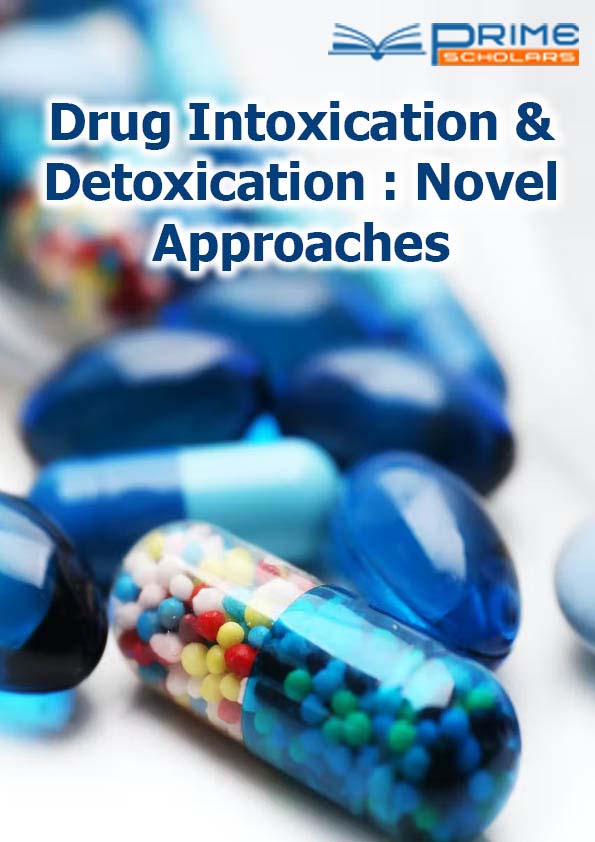Perspective - (2025) Volume 6, Issue 1
Rethinking Detoxication of Drugs: A Holistic Approach to Recovery
Nina Ivanova*
Department of Drugs, Rhodes University, South Africa
*Correspondence:
Nina Ivanova, Department of Drugs, Rhodes University,
South Africa,
Email:
Received: 13-Dec-2023, Manuscript No. DIDNA-24-18589 ;
Editor assigned: 16-Dec-2023, Pre QC No. DIDNA-24-18589 (PQ);
Reviewed: 02-Jan-2024, QC No. DIDNA-24-18589 ;
Revised: 05-Feb-2025, Manuscript No. DIDNA-24-18589 (R);
Published:
13-Feb-2025, DOI: 10.36648/DIDNA.6.1.47
Introduction
The concept of detoxification, often colloquially referred to as "detox," has become ingrained in discussions surrounding substance abuse and addiction. Traditionally, detoxication has been viewed as a critical initial step in the journey toward recovery from drug dependence. However, as our understanding of addiction evolves, it becomes essential to reevaluate and broaden the perspective on detoxication. In this opinion article, we explore the limitations of a narrow detox-focused approach and advocate for a more comprehensive and holistic strategy that addresses the complex nature of substance use disorders. In the conventional model of detoxication, the primary goal is to rid the body of the substance of abuse while managing the withdrawal symptoms that often accompany the cessation of drug use. This process is typically conducted under medical supervision, and medications may be administered to alleviate the discomfort associated with withdrawal. While detox is an important step in the overall treatment process, it is not a standalone solution to the complexities of addiction.
Description
Detoxication, in isolation, may provide temporary relief from the physiological aspects of addiction, but it often falls short in addressing the broader psychological, social, and behavioral components that contribute to substance use disorders. Addiction is a multifaceted condition influenced by genetic, environmental, and individual factors, and a myopic focus on detox alone fails to encompass the full spectrum of challenges individuals face on their path to recovery. Rather than viewing detoxication as a standalone phase, it should be seen as a crucial prelude to comprehensive treatment that addresses the underlying causes of addiction. Once the acute withdrawal symptoms are managed, individuals must transition seamlessly into evidence-based therapies, counselling and support systems that foster long-term recovery. A holistic approach to addiction treatment recognizes that recovery extends beyond the mere absence of the substance from the body. It encompasses the psychological, emotional, and social aspects of an individual's life. Therapies such as Cognitive- Behavioral Therapy (CBT), Dialectical Behavior Therapy (DBT), and motivational interviewing can provide valuable tools for individuals to navigate the challenges of recovery and build resilience against relapse triggers. Moreover, integrating support systems such as 12-step programs, family therapy, and community-based interventions can enhance the social aspects of recovery. Recognizing the importance of mental health and addressing any co-occurring disorders is also fundamental in a holistic approach, as mental health and substance use disorders often intertwine. No single treatment approach fits all, and tailoring interventions to the unique needs of each individual is paramount. Understanding the personal triggers, motivations, and challenges that contribute to substance use allows for the development of individualized treatment plans. This may involve a combination of therapy modalities, pharmacotherapy, and lifestyle changes designed to support sustained recovery. Community involvement plays a crucial role in long-term recovery. Establishing a supportive network that understands and encourages the recovery journey can provide individuals with a sense of belonging and purpose. Shifting the narrative around addiction treatment requires not only a change in clinical practices but also policy adjustments.
Conclusion
Increased investment in mental health services, prevention
programs, and community resources can create an
infrastructure that supports a holistic approach to addiction.
While detoxication remains a critical element in addressing
substance use disorders, we must broaden our perspective to
encompass the comprehensive nature of addiction. A holistic
approach that integrates evidence-based therapies,
individualized treatment plans, community involvement, and
policy support offers a more effective and compassionate way
forward. By recognizing that recovery extends beyond the
physical elimination of substances, we can pave the way for a
more sustainable and empowering journey toward overcoming
addiction.
Citation: Ivanova N (2025) Rethinking Detoxication of Drugs: A Holistic Approach to Recovery. Drug Intox Detox: Novel Approaches.
6:47.
Copyright: © 2025 Ivanova N. This is an open-access article distributed under the terms of the Creative Commons
Attribution License, which permits unrestricted use, distribution, and reproduction in any medium, provided the original author
and source are credited.
